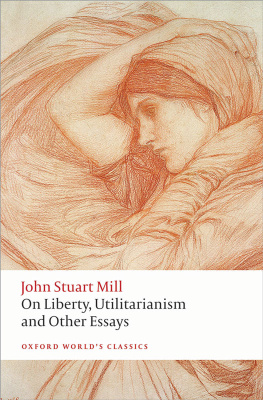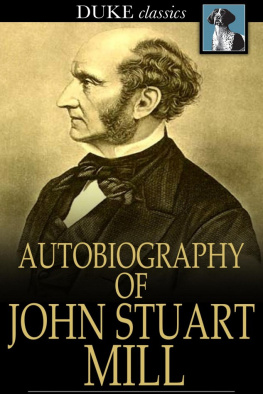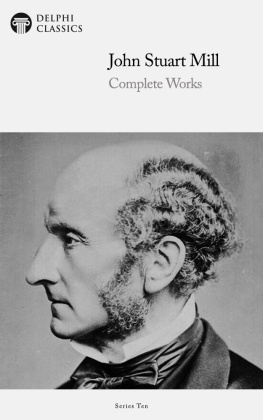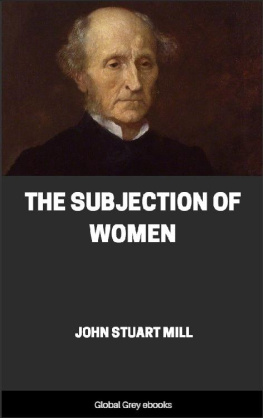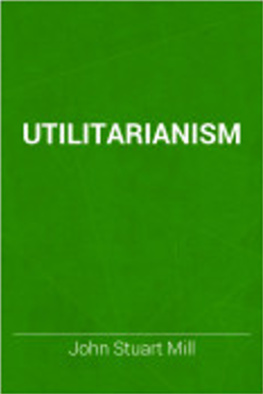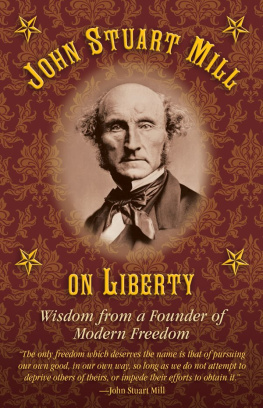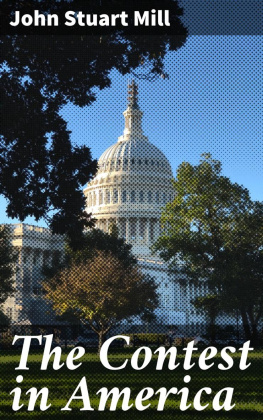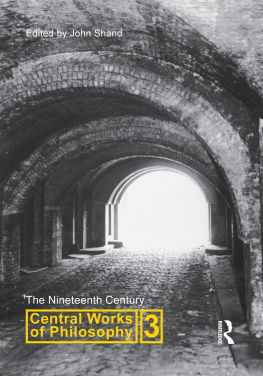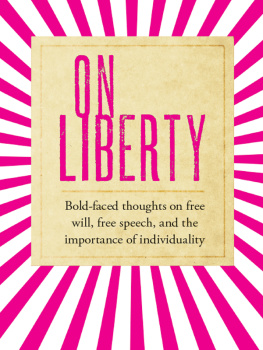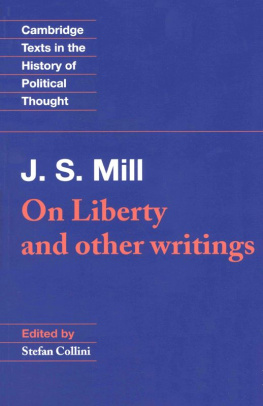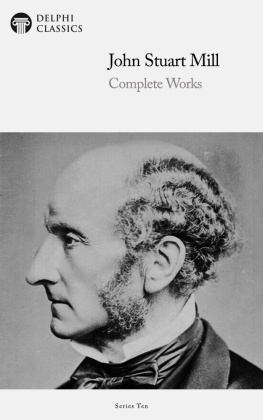
OXFORD WORLDS CLASSICS
ON LIBERTY, UTILITARIANISM,
AND OTHER ESSAYS
JOHN STUART MILL (180673), philosopher, economist, and political thinker, was the most prominent figure of nineteenth-century English intellectual life and his work has continuing significance for contemporary debates about ethics, politics, and economics. His father, James Mill, a close associate of the utilitarian philosopher Jeremy Bentham, took responsibility for his eldest sons education, teaching him ancient Greek at the age of 3 and equipping him with a deep and an extremely broad knowledge of the physical and moral sciences of the day. In his late teens Mill became a passionate advocate and proselytizer for Benthams ideas, but his Autobiography, published after his death, confesses to a mental crisis in his early twenties that left him concerned to develop what he saw as a more complex, liberal, utilitarian philosophy. In the subsequent forty-five years he produced major works on logic and political economy, and numerous essays and studies of which the four collected in this volume are the most famous. He held senior office for many years at the East India Company, was owner and editor for a period of the London Review and then the London and Westminster Review, and, towards the end of his life, served as a Member of Parliament for the seat of Westminster. Mills relationship with Harriet Taylor, which began in 1830 and culminated in their marriage in 1851, two years after the death of her husband, was one of the most significant of his life, and she was acknowledged as a profound influence especially on his essays On Liberty and The Subjection of Women. The four essays in this collection demonstrate Mills appreciation of the diversity, plurality, and complexity of ways of life and their possibilities, and his concern to develop an open and progressive response to a changing world so as to promote human flourishing and, in its broadest sense, human happiness.
MARK PHILP holds a chair in History and Politics at the University of Warwick. He is an Emeritus Fellow of Oriel College, Oxford. His recent books include Political Conduct (2007) and Reforming Ideas in Britain (2013).
FREDERICK ROSEN is Professor Emeritus of the History of Political Thought at University College London, where he has taught for many years directing the Bentham Project. His recent books include Classical Utilitarianism from Hume to Mill (2003) and Mill (2013).
OXFORD WORLDS CLASSICS
For over 100 years Oxford Worlds Classics have broughtreaders closer to the worlds great literature. Now with over 700titlesfrom the 4,000-year-old myths of Mesopotamia to thetwentieth centurys greatest novelsthe series makes availablelesser-known as well as celebrated writing.
The pocket-sized hardbacks of the early years containedintroductions by Virginia Woolf, T. S. Eliot, Graham Greene,and other literary figures which enriched the experience of reading.Today the series is recognized for its fine scholarship andreliability in texts that span world literature, drama and poetry,religion, philosophy, and politics. Each edition includes perceptivecommentary and essential background information to meet thechanging needs of readers.

Great Clarendon Street, Oxford, Ox2 6DP
United Kingdom
Oxford University Press is a department of the University of Oxford. It furthers the Universitys objective of excellence in research, scholarship, and education by publishing worldwide. Oxford is a registered trade mark of Oxford University Press in the UK and in certain other countries
Editorial material Mark Philp and Frederick Rosen 2015
The moral rights of the authors have been asserted
On Liberty and Other Essays first published as a Worlds Classics paperback 1991 Reissued as an Oxford Worlds Classics paperback 1998, 2008
New edition 2015
Impression: 1
All rights reserved. No part of this publication may be reproduced, stored in a retrieval system, or transmitted, in any form or by any means, without the prior permission in writing of Oxford University Press, or as expressly permitted by law, by licence or under terms agreed with the appropriate reprographics rights organization. Enquiries concerning reproduction outside the scope of the above should be sent to the Rights Department, Oxford University Press, at the address above
You must not circulate this work in any other form and you must impose this same condition on any acquirer
Published in the United States of America by Oxford University Press 198 Madison Avenue, New York, NY 10016, United States of America
British Library Cataloguing in Publication Data
Data available
Library of Congress Control Number: 2015936008
ISBN 9780191649813
Printed in Great Britain by
Clays Ltd, St Ives plc
Links to third party websites are provided by Oxford in good faith and for information only. Oxford disclaims any responsibility for the materials contained in any third party website referenced in this work.
Acknowledgements
THE editors wish to thank Judith Luna for her initiation, her careful steering of this project, and her exemplary patience, Dr Henrietta Ewart for her assistance in checking our notes, and Emily Brand, Rowena Anketell, and Peter Gibbs for their exemplary work respectively on the production, manuscript, and proofs. We ought also to thank the British Library, and especially its cafes, where a great deal of editorial debate took place, and Oriel Library for its extended loans of many volumes of Mills Works. The editors wish to acknowledge the important work of John M. Robson, the General Editor of the Collected Works of John Stuart Mill, and his team for numerous insights and references that have influenced this work and provided a somewhat daunting example. We have gone further than Robson in extending the supporting notes so as to clarify for the more general reader as fully as possible Mills references and allusions.
M.P., F.R.
JOHN STUART MILL (180673) is a central figure in the canon of Western philosophy and literature. His writing engaged with a wide variety of different strands of nineteenth-century thought: utilitarianism, romanticism, scientism, historicism, political economy, sociology, and so on. He came of age in a Britain recovering from the wars with Napoleonic France and with rising popular discontent against an exclusive and elitist political system and an emerging industrial system in which mens and womens lives appeared dramatically exposed to the uncertainties of trade and manufactures. His expectations of the Reform Bill of 1832 were not high, and were not exceeded. His experience on the streets of Revolutionary Paris in 1830 led him to hope for more dramatic reforms than were proposed in England. Above all, he saw himself as living in a period of transition from a highly unequal society to a more egalitarian order, with an end to distinction based on rank, through the extension of literacy, and the opening of prospects for individual development across the whole population. His thinking drew liberally from European thought as well as from English and Scottish Enlightenment traditions and contemporary debates and in his lifetime he carved himself a place as Britains foremost intellectual. His work straddled many of the boundaries that have defined his successors allegiances, such as that between liberalism and socialism. Consequently, while many have claimed him as an intellectual forebear, the full breadth of his thought and the subtlety of his convictions have been captured by very few.
Next page
